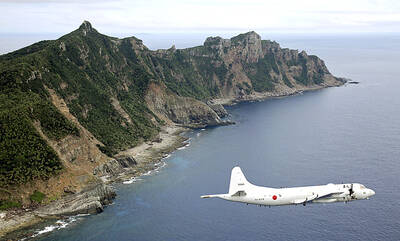The Special Investigation Panel (SIP) of the Supreme Prosecutor’s Office said yesterday it would appeal the release of former president Chen Shui-bian (陳水扁), who was freed without bail on Saturday morning after being held for 32 days.
“We will appeal Chen’s case to the Taiwan High Court tomorrow [today],” SIP spokesman Chen Yun-nan (陳雲南) told reporters yesterday.
State public Prosecutor-General Chen Tsung-ming (陳聰明) and the eight SIP prosecutors investigating the former president’s finances met yesterday morning to reach a decision on whether to appeal.
Chen Yun-nan had said on Saturday that the SIP respected the Taipei District Court’s decision to release the former president and would not appeal, but admitted on Sunday he had spoken without consulting the other prosecutors.
Chen Tsung-ming told reporters on Sunday it was normal for a defendant to be released by a district court after an investigation was complete and the case was to be brought to court.
However, in Chen Shui-bian’s case, prosecutors said they were still probing other allegations involving the former first family and the release of the former president could allow him to discuss the investigations with other individuals.
In their appeal of the release, prosecutors will argue that Chen Shui-bian could conspire with other individuals involved in the case, Chen Yun-nan said.
The high court can reject the request or order the district court to reconsider its decision.
Commenting on the prosecutors’ decision to appeal, DPP caucus whip William Lai (賴清德) said it was surprising that the SIP had changed its mind.
“The SIP should explain to the public whether or not politics were involved,” he said.
Chen Shui-bian, who was detained on Nov. 12, was indicted on charges of embezzling government funds, money laundering and forgery along with 13 others, including his wife, son and daughter-in-law.
As prosecutors are seeking the “severest penalty,” legal experts say the former president could face life in prison if convicted.
Chen Shui-bian has repeatedly denied all the charges against him, saying he is the victim of political persecution.
Prosecutors charged him and his wife, Wu Shu-jen (吳淑珍), with illegally receiving or embezzling NT$490 million (US$14.7 million), some of which was sent overseas.
Of that total, the indictment says, NT$104.15 million was embezzled from the “state affairs” fund during the former president’s eight years in office.

MISINFORMATION: The generated content tends to adopt China’s official stance, such as ‘Taiwan is currently governed by the Chinese central government,’ the NSB said Five China-developed artificial intelligence (AI) language models exhibit cybersecurity risks and content biases, an inspection conducted by the National Security Bureau (NSB) showed. The five AI tools are: DeepSeek, Doubao (豆包), Yiyan (文心一言), Tongyi (通義千問) and Yuanbao (騰訊元寶), the bureau said, advising people to remain vigilant to protect personal data privacy and corporate business secrets. The NSB said it, in accordance with the National Intelligence Services Act (國家情報工作法), has reviewed international cybersecurity reports and intelligence, and coordinated with the Ministry of Justice Investigation Bureau and the National Police Agency’s Criminal Investigation Bureau to conduct an inspection of China-made AI language

LIMITS: While China increases military pressure on Taiwan and expands its use of cognitive warfare, it is unwilling to target tech supply chains, the report said US and Taiwan military officials have warned that the Chinese People’s Liberation Army (PLA) could implement a blockade within “a matter of hours” and need only “minimal conversion time” prior to an attack on Taiwan, a report released on Tuesday by the US Senate’s China Economic and Security Review Commission said. “While there is no indication that China is planning an imminent attack, the United States and its allies and partners can no longer assume that a Taiwan contingency is a distant possibility for which they would have ample time to prepare,” it said. The commission made the comments in its annual

‘TROUBLEMAKER’: Most countries believe that it is China — rather than Taiwan — that is undermining regional peace and stability with its coercive tactics, the president said China should restrain itself and refrain from being a troublemaker that sabotages peace and stability in the Indo-Pacific region, President William Lai (賴清德) said yesterday. Lai made the remarks after China Coast Guard vessels sailed into disputed waters off the Senkaku Islands — known as the Diaoyutai Islands (釣魚台) in Taiwan — following a remark Japanese Prime Minister Sanae Takaichi made regarding Taiwan. Takaichi during a parliamentary session on Nov. 7 said that a “Taiwan contingency” involving a Chinese naval blockade could qualify as a “survival-threatening situation” for Japan, and trigger Tokyo’s deployment of its military for defense. Asked about the escalating tensions

DISPUTE: A Chinese official prompted a formal protest from Tokyo by saying that ‘the dirty head that sticks itself out must be cut off,’ after Takaichi’s Taiwan remarks Four armed China Coast Guard vessels yesterday morning sailed through disputed waters controlled by Japan, amid a diplomatic spat following Japanese Prime Minister Sanae Takaichi’s comments on Taiwan. The four ships sailed around the Senkaku Islands — known as the Diaoyutai Islands (釣魚台) to Taiwan, and which Taiwan and China also claim — on Saturday before entering Japanese waters yesterday and left, the Japan Coast Guard said. The China Coast Guard said in a statement that it carried out a “rights enforcement patrol” through the waters and that it was a lawful operation. As of the end of last month,